
EU boosts Armenian communities by opening doors for women
Gender inequality and stereotypes can make Armenian women reluctant to take part in new initiatives. Many are afraid that they will not get support from society and their families, and so they do not maximise their full potential. Thanks to the programmes and support offered by the European Union (EU), Armenian women are overcoming this fear and taking advantage of new, live-changing opportunities.
Gohar Tsakanova: the scientist contributing to European brain diseases treatment research
The Institute of Molecular Biology at the Armenian National Academy of Sciences is a high-rise building situated in Yerevan. Active and lively, it’s full of people in white coats rushing from one room to another. Gohar Tsakanova is one of them. A young scholar popular both in Armenia and internationally, Gohar is also a senior researcher and the deputy director of the Institute.
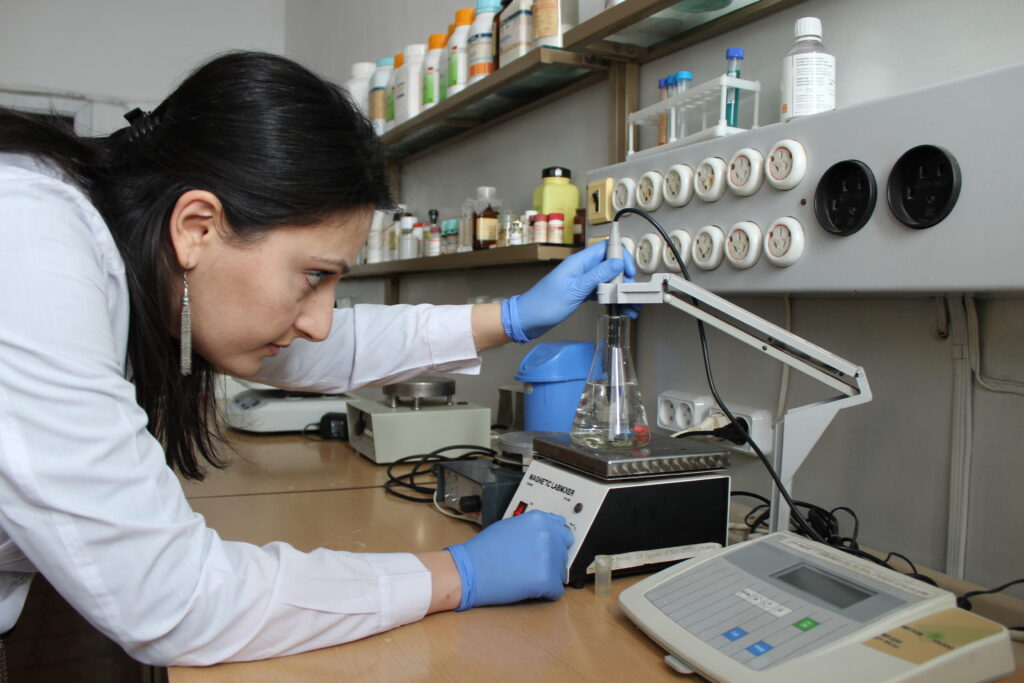 Gohar Tsakanova, Armenian scientist contributing to European brain diseases treatment research
Gohar Tsakanova, Armenian scientist contributing to European brain diseases treatment research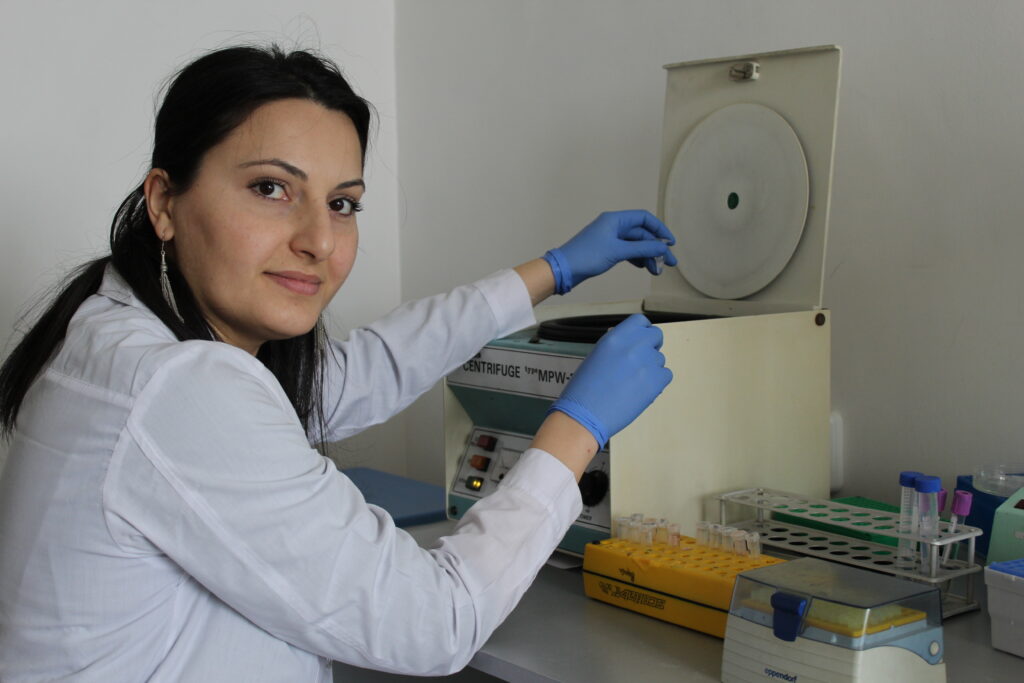 Gohar Tsakanova at the laboratory of the Institute of Molecular Biology at the Armenian National Academy of Sciences
Gohar Tsakanova at the laboratory of the Institute of Molecular Biology at the Armenian National Academy of Sciences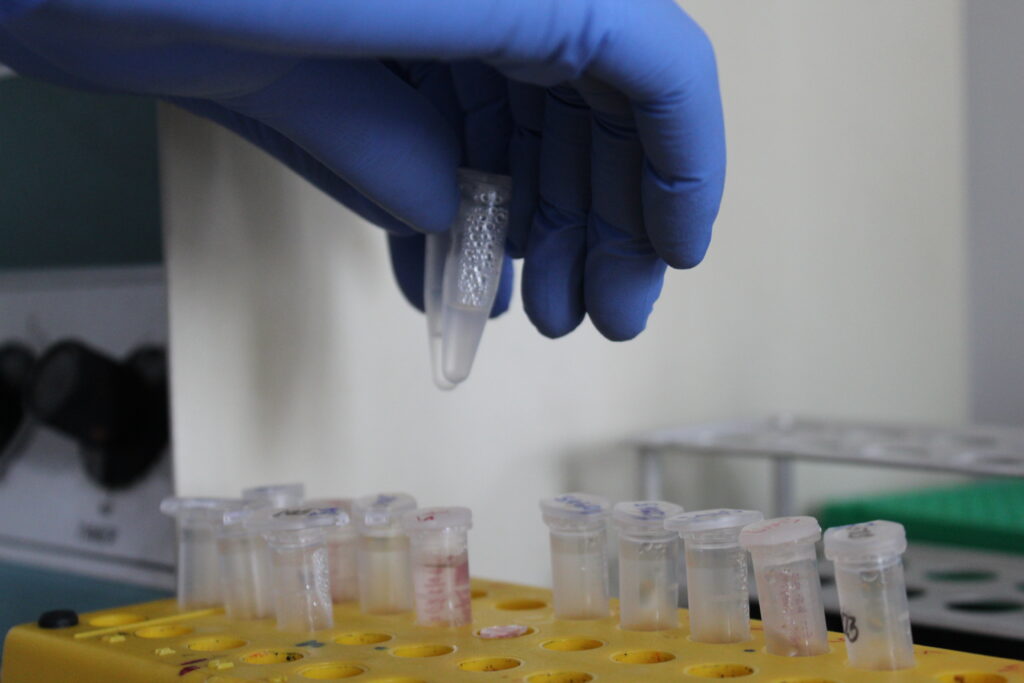 Laboratory equipment
Laboratory equipment
Gohar’s story began in 2012, when she got her Ph.D. from the Armenian National Academy of Sciences. Her mentors recommended her for participation in two EU-organised scientific meetings in Brussels, under the Marie Skłodowska-Curie Actions of the European Commission.
“That was the start of my long and interesting journey into the area of international scientific and technological institutions. Before this event I was just focused on my research,” Gohar says, adding that participation in the meetings had a positive impact on her career. “I have never met such a warm, effective and industry-directed research atmosphere as I did during various scientific meetings.”
Taking part in the meetings led to range of further collaborations for Gohar. The European scientific and medical community Gohar is involved in proposed the implementation of clinical microbeam radiation therapy as less invasive way for the treatment of malignant and non-malignant pathologies that could save people’s lives in the future.
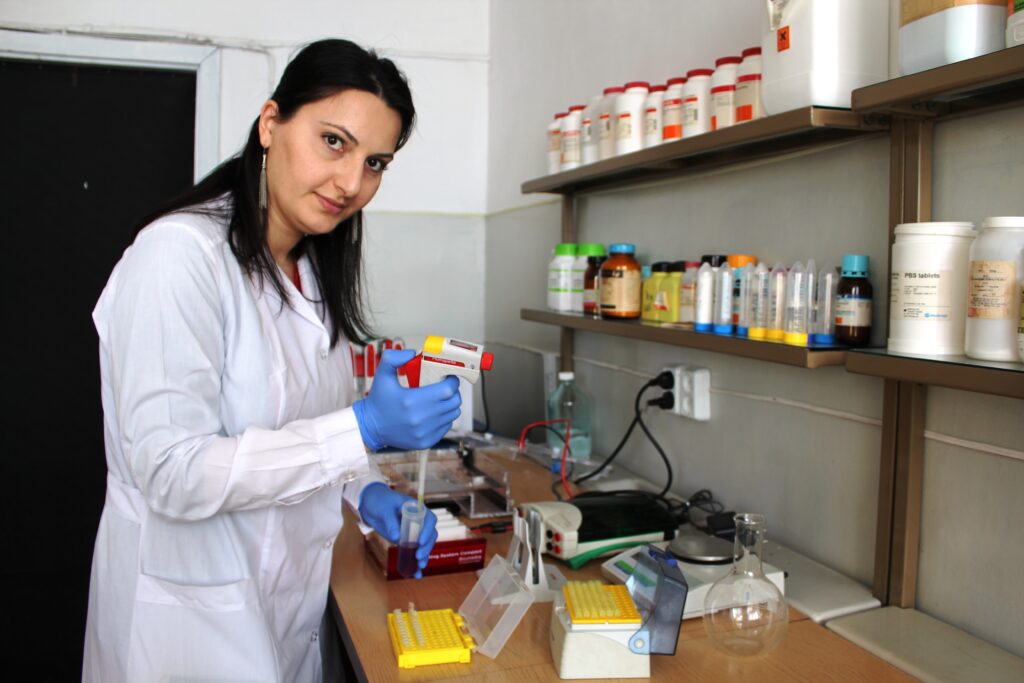 Gohar Tsakanova at the laboratory of the Institute of Molecular Biology at the Armenian National Academy of Sciences
Gohar Tsakanova at the laboratory of the Institute of Molecular Biology at the Armenian National Academy of Sciences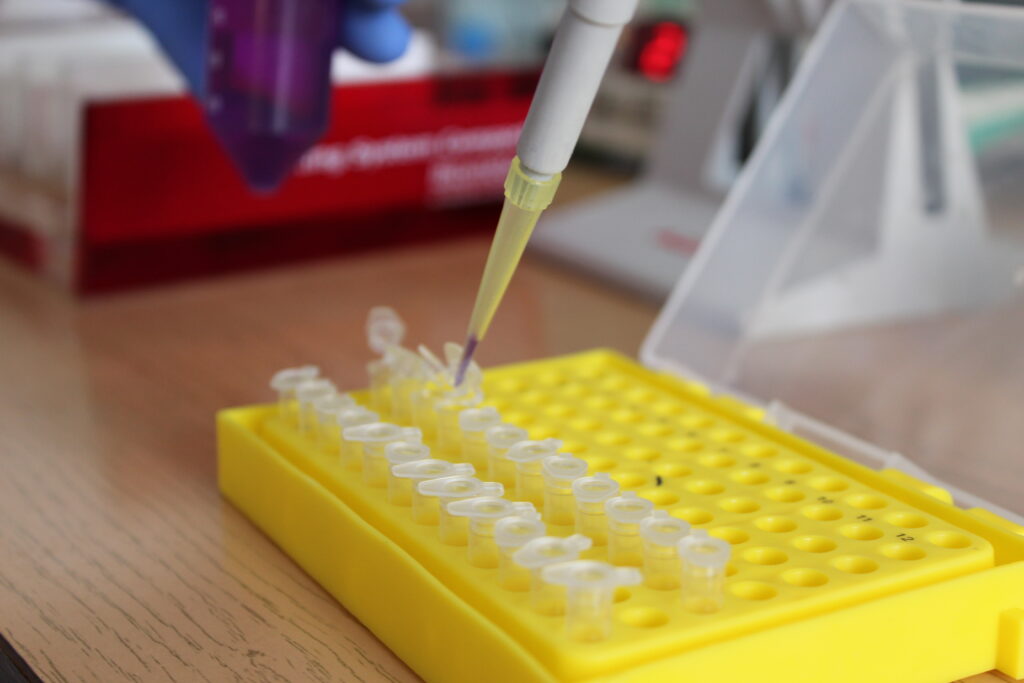 Laboratory equipment
Laboratory equipment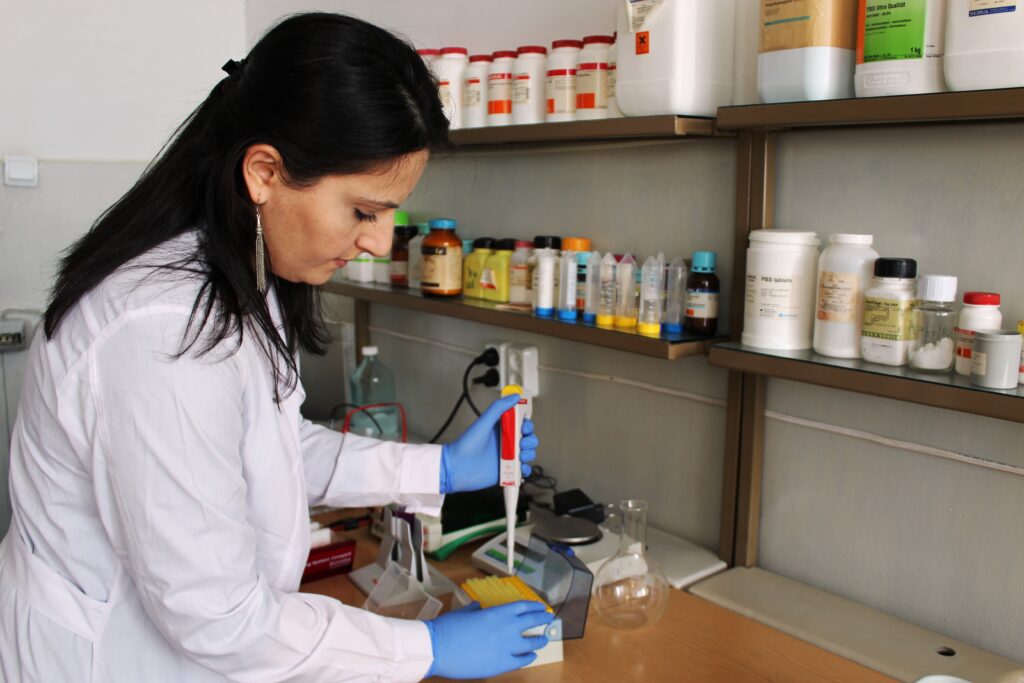 Gohar Tsakanova at the laboratory of the Institute of Molecular Biology at the Armenian National Academy of Sciences
Gohar Tsakanova at the laboratory of the Institute of Molecular Biology at the Armenian National Academy of Sciences
Gohar also teamed up with researchers from Europe that she met at the meetings and in 2017, they received a grant for joint German-Armenian projects to continue collaborative work in the cancer research field.
Gohar believes that participation in these kind of conferences opens doors for scholars like her. As they get acquainted with European scientists and their practices, they can also take that knowledge back to their home countries.
Satenik Khachatryan: the Erasmus graduate who went from a village to four EU countries
Satenik Khachatryan always wanted to do a master’s degree outside of Armenia, in childhood education and childcare. She was searching for a relevant programme when she came across an opportunity to study at several universities in Europe through the Erasmus programme.
“My idea was to do a master’s that would enable me to have a bigger influence back in my country,” Satenik says. “When I sent my application, I didn’t know that my educational ambitions were going to take me to a university in Norway.”
Oslo and Akershus University College of Applied Sciences were coordinating the programme Satenik joined. After her time in Norway, she went on to study at the Dublin Institute of Technologies, Ireland, the University of Malta and the University of Gothenburg in Sweden. Satenik defines this experience as one of the best things that happened to her as she could combine her two favourite things – traveling and studying.
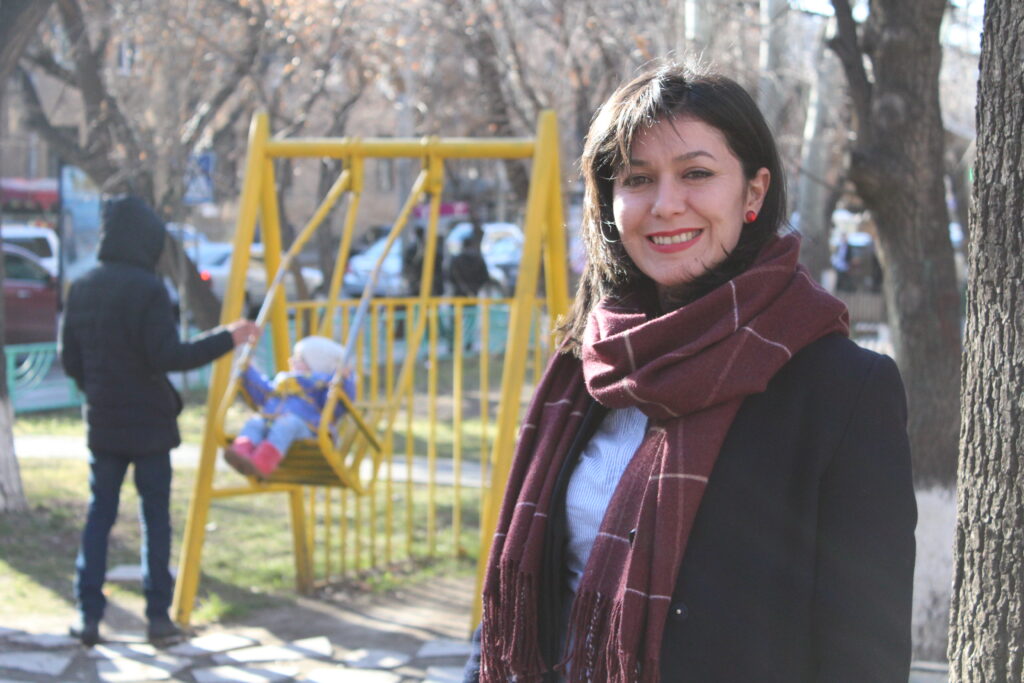 Satenik Khachatryan
Satenik Khachatryan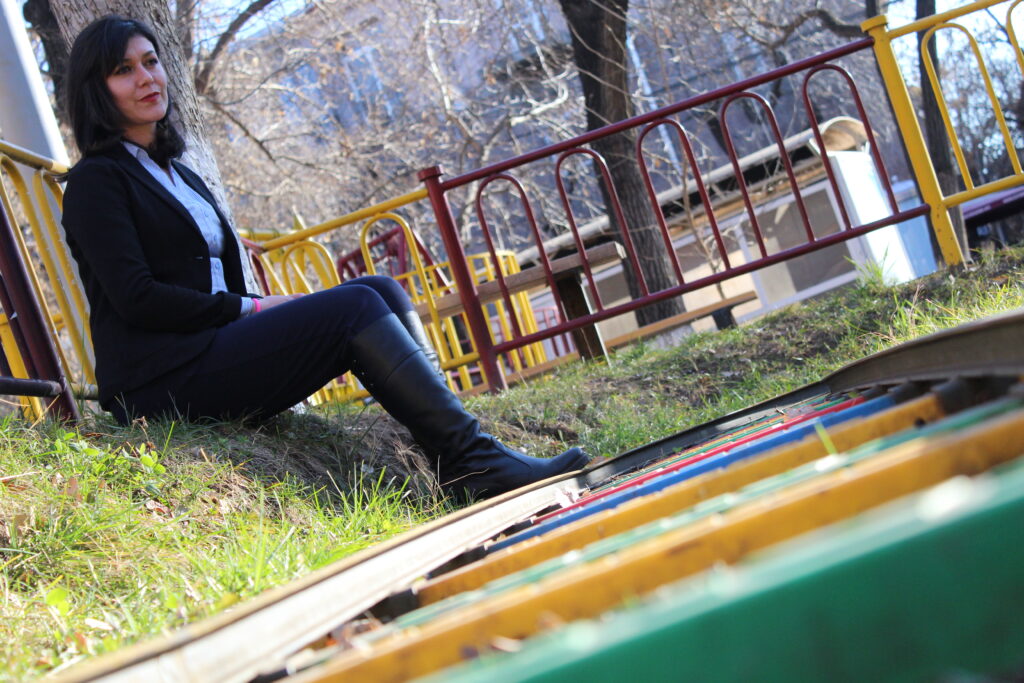 Satenik Khachatryan
Satenik Khachatryan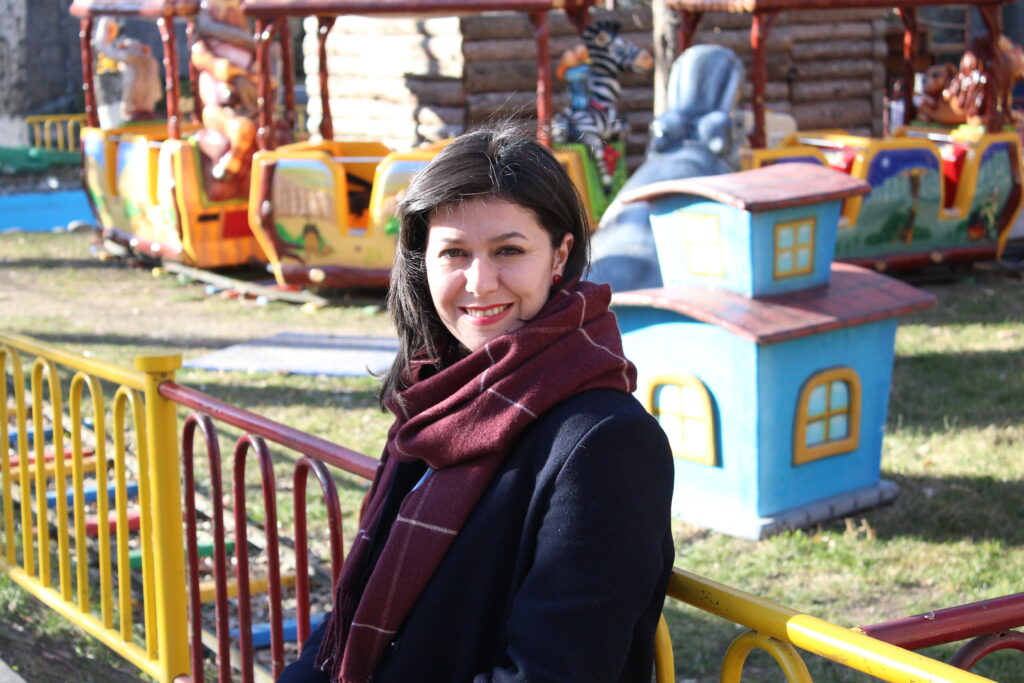 Satenik Khachatryan
Satenik Khachatryan
“When I finished the programme, I had the choice of continuing my education or starting a new job abroad, but I always knew that I wanted to come back to Armenia and bring about change,” Satenik says. Two months after her return home, Satenik got a job as a Child Protection and Education Coordinator of World Vision Armenia in c region. She now works in her hometown Chambarak, covering sixty communities and three towns in this region.
“I think I am a ‘living example’ for children and parents from these rural communities,” Satenik concludes. “They think they cannot study abroad because they live here. I always bring up my story as an example, telling them how sending an application from the village post office led me to study in four different European countries and determined my career path.”
Marie Lou Papazian: the creative centre director using technology to teach Armenian teenagers about European values
Founded in 2011, “Tumo” Centre for Creative Technologies has become a popular destination for Armenian teenagers. The centre has a non-formal learning environment where thousands of young people aged 12-18 carry out their own study plans under the guidance of experienced teachers and media professionals.
The EU has supported several ideas proposed by the Tumo Centre through its EU4Innovation initiative, including the Next Generation Anti-Corruption Game.
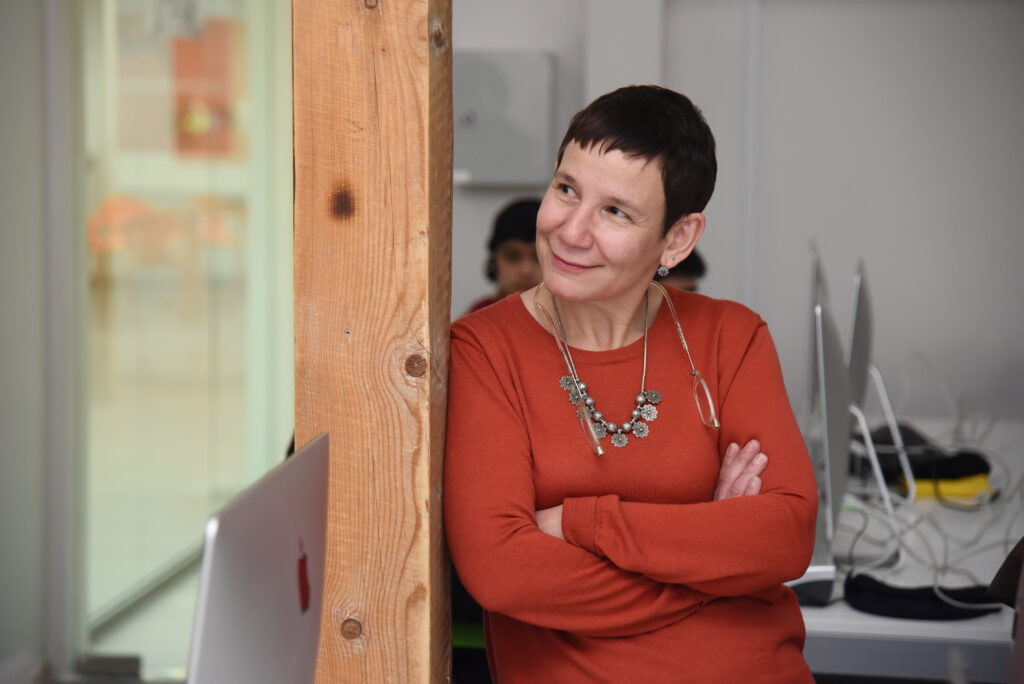 Marie Lou Papazian, Managing Director of Tumo Centre for Creative Technologies (photo provided by Tumo centre)
Marie Lou Papazian, Managing Director of Tumo Centre for Creative Technologies (photo provided by Tumo centre)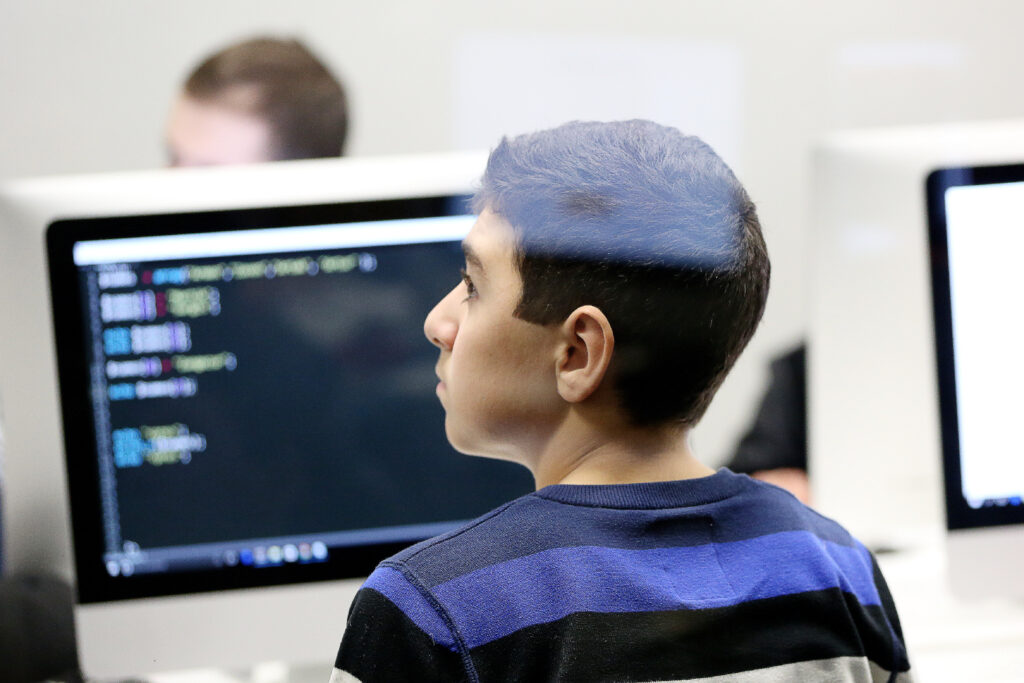 Young Armenians play anti-corruption game at Tumo Centre (photo provided by Tumo centre)
Young Armenians play anti-corruption game at Tumo Centre (photo provided by Tumo centre)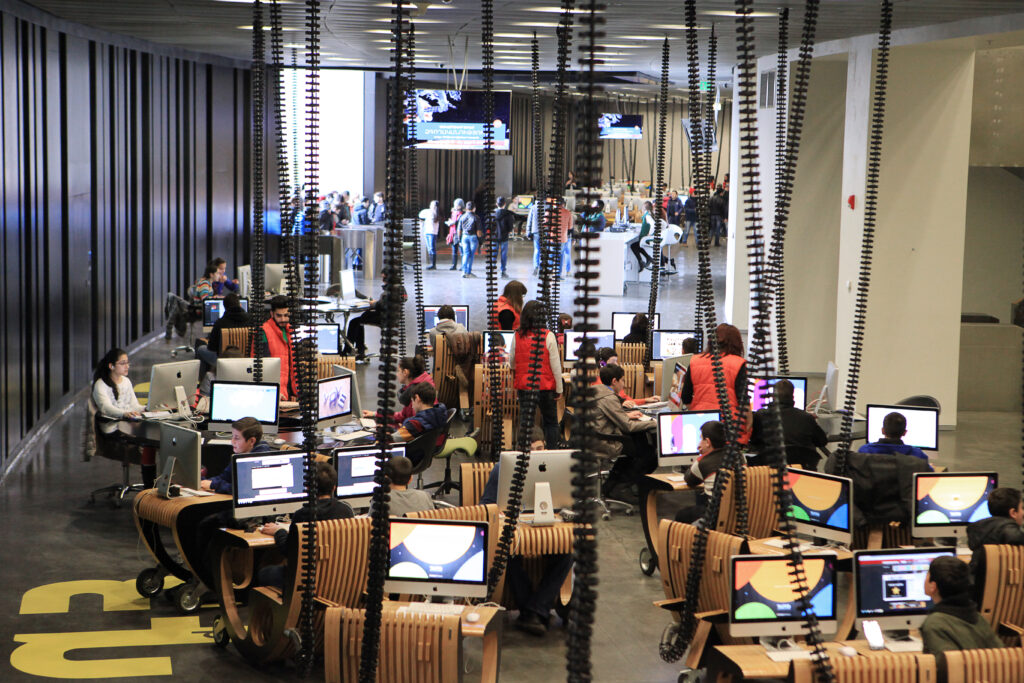 Inside Tumo Centre for Creative Technologies (photo provided by Tumo centre)
Inside Tumo Centre for Creative Technologies (photo provided by Tumo centre)
Marie Lou Papazian, Managing Director of Tumo, believes that the most important aspect of the project is its educational components and the experience it brings. “The anti-corruption game is being built by the students. They have done a lot of thinking about what corruption is, how to solve or prevent it, and what is important for their city or country. It helps them understand who they are and what role they play not only in Armenia, but also globally.”
She knows that you cannot change attitudes and behaviours in one day, but working with young people is a great start. “When you give them examples and show them the difference these examples can make, they become the ambassadors of these ideas. They start promoting and respecting them.” Being involved in such games also helps young people to grasp the philosophy and values that are behind the ‘without corruption’ behaviour and mentality, she adds. This gives the hope that when they grow up, the teenagers will put the ideas from the game into practice.
Siranush Andreasyan: the agricultural director leading her village to farming success
After the collapse of the Soviet Union, the Andreasyan family from Mets Mantash village in the Shirak Province of Armenia lost their jobs and had to go into farming. “We did not have any alternatives,” Siranush Andreasyan, the mother of the family, says.
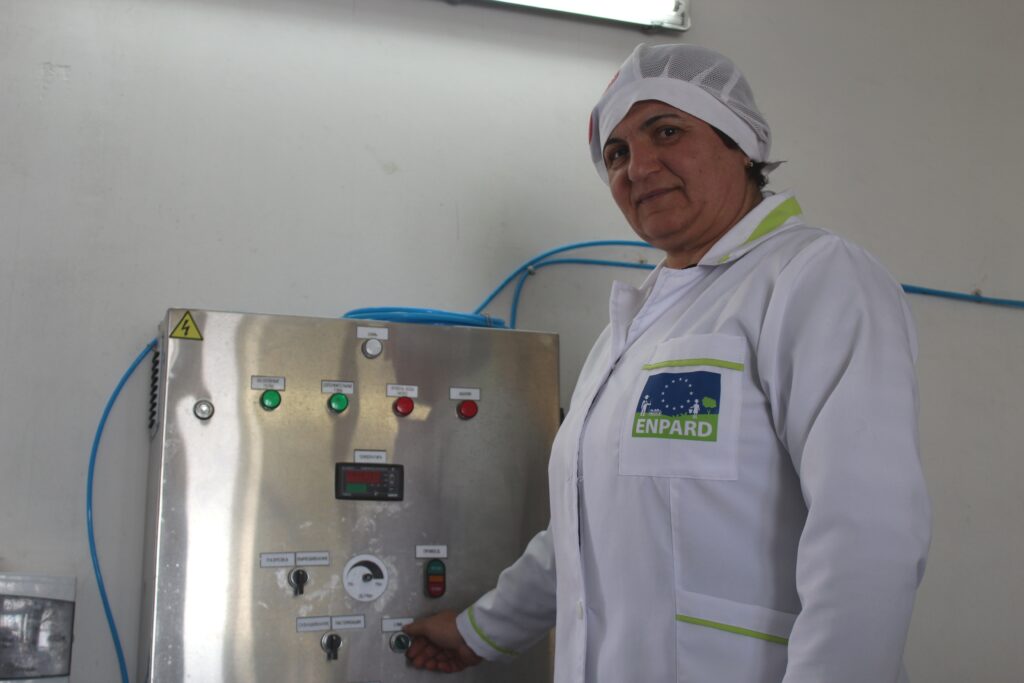 Siranush Andreasyan at the cheese production cooperative in Mets Mantash village
Siranush Andreasyan at the cheese production cooperative in Mets Mantash village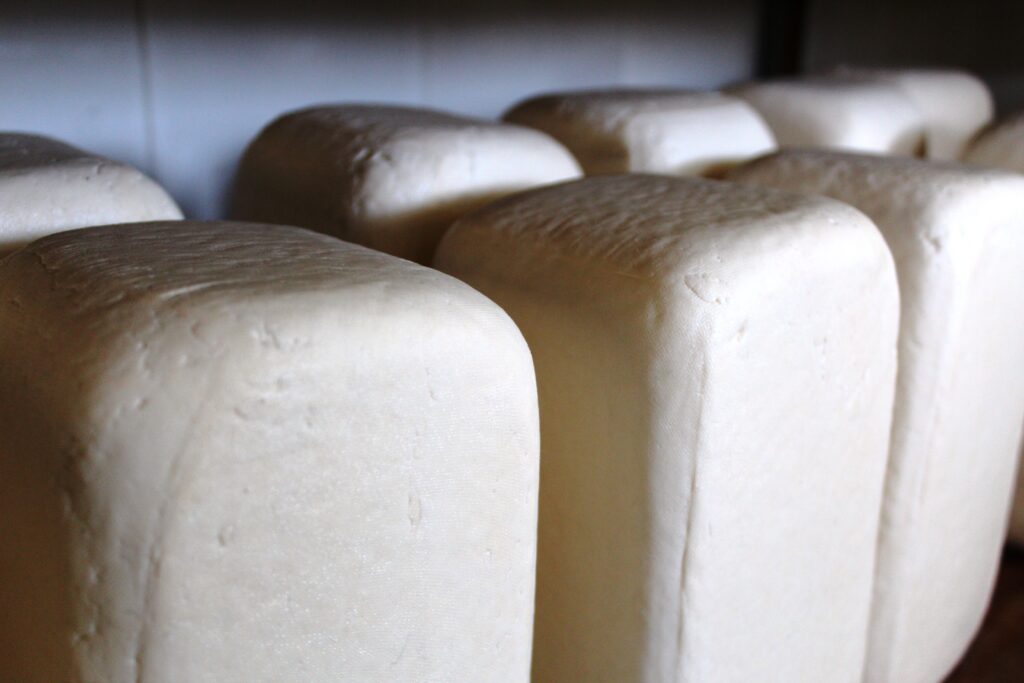 Cheese prodeced at the EU-supported cooperative in Mets Mantash village
Cheese prodeced at the EU-supported cooperative in Mets Mantash village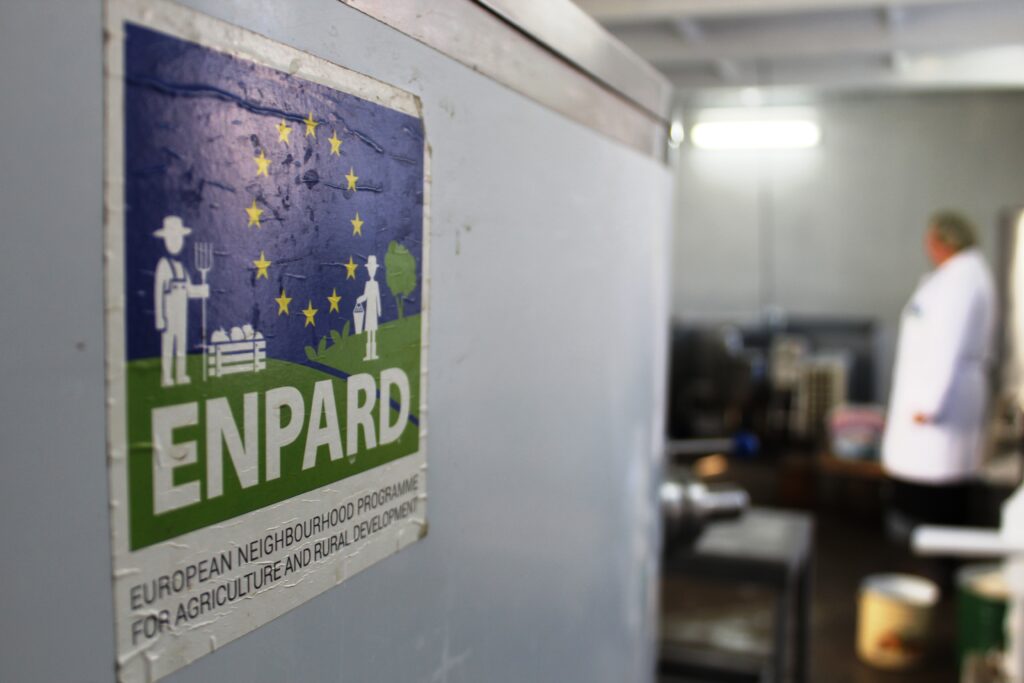 ENPARD supported cheese production cooperative in Mets Mantash village
ENPARD supported cheese production cooperative in Mets Mantash village
There was a tradition in their village of women sharing milk with each other. Later, the women decided to form an agricultural cooperative (Mantashi Milena, with Siranush as the director) and sell their products at the local market. They bought the necessary equipment, but it was old and did not meet the existing standards of the market. At first, their dairy products sold well, but later on the shops stopped accepting them.
“There was an open call announced by ENPARD [the European Neighbourhood Programme for Agriculture and Rural Development] and we decided to apply,” Siranush says, “The application was successful and it became a salvation for us.”
Through the programme, the Mantashi Milena cooperative received the necessary equipment to bring their standards up-to-date. “Thanks to the EU we have our cooperative, our certificate and shops accept our products now,” Siranush shares. “We produce high-quality products and we can sell our cheese for a profit.”
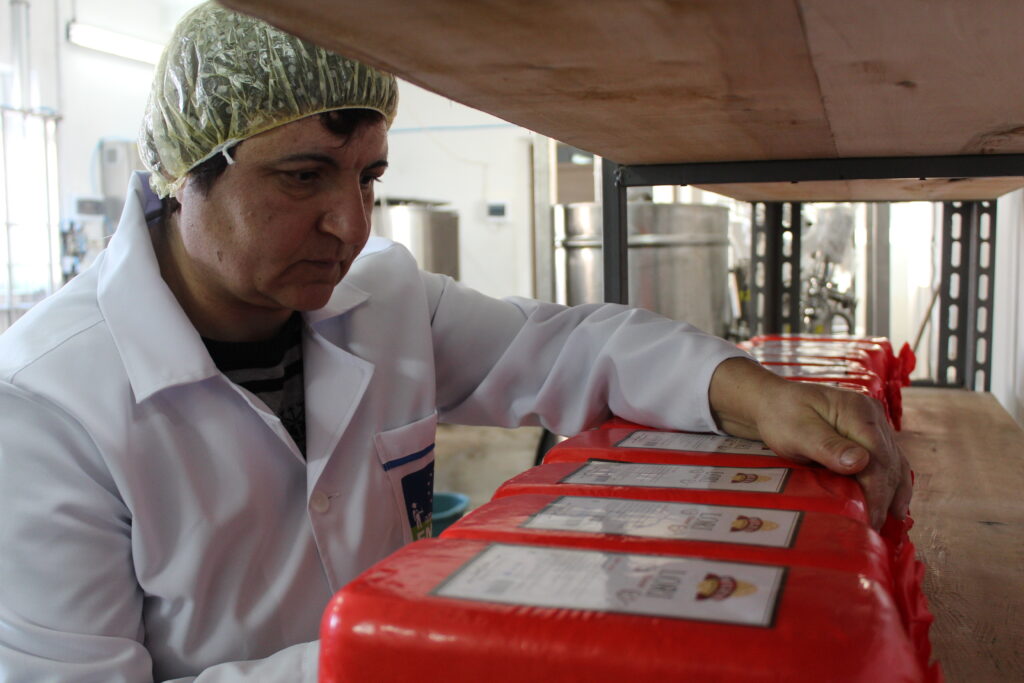 Siranush Andreasyan
Siranush Andreasyan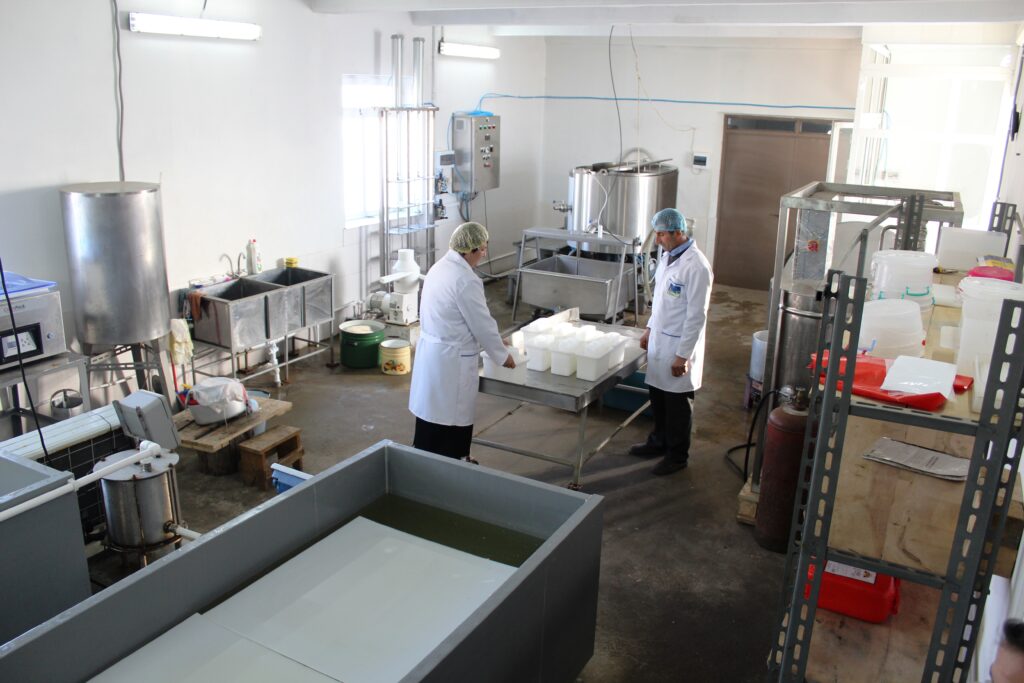 Inside cheese production cooperative at Mets Mantash village
Inside cheese production cooperative at Mets Mantash village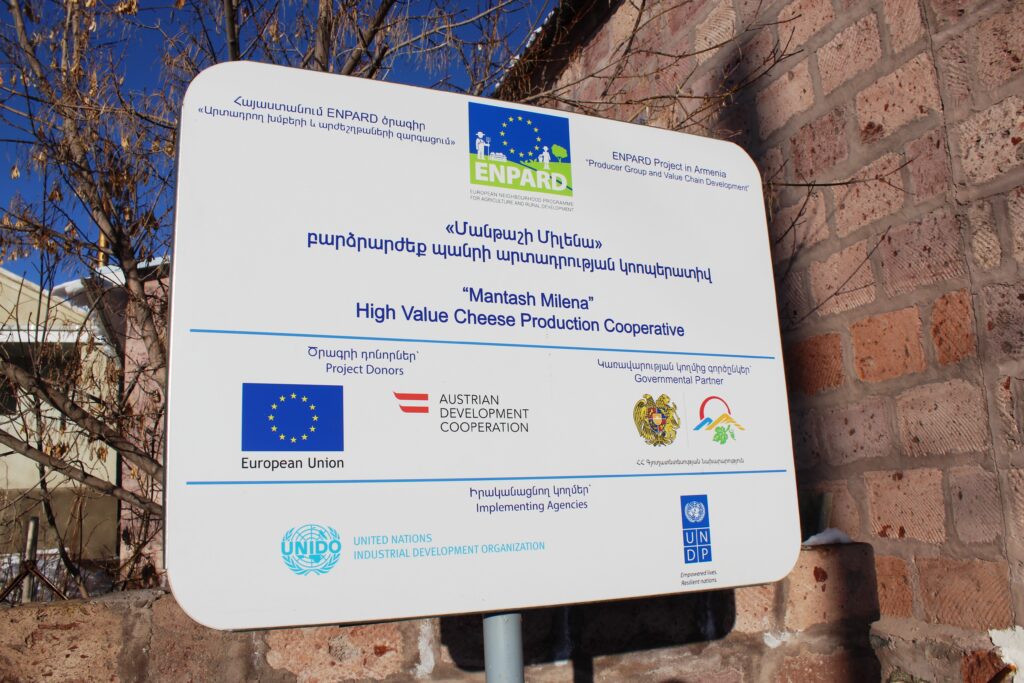 EU supported local initiative helped creation of cheese production cooperative in Mets Mantash village
EU supported local initiative helped creation of cheese production cooperative in Mets Mantash village
By supporting the cooperative, ENPARD is also supporting the Mets Mantash community. Siranush is proud that farming now motivates people to stay at home. “Before, many people were leaving to look for jobs in other parts of Armenia or abroad. Things have started changing recently and more people are staying and working in their community.”
Ani Khachatryan: the Young European Ambassador with friends in every country
Ani Khachatryan is a Young European Ambassador from Armenia. Although unusual for a young person like her to bear such a high title, it is possible. One of 200 young people competitively selected in the EU and six Eastern Partner countries, Ani and her fellow ambassadors share EU values and discuss matters of direct concern to young people, such as cultural experiences and events, and studying and volunteering opportunities.
Ani has always been interested in the EU, its relationship with Armenia and the projects it implements in her country. Her interest doubled when she visited Brussels in 2015 and got acquainted with the history of European integration. “It was a great opportunity to understand how EU institutions work, and how EU policy is being developed and implemented,” Ani says. “After this visit, I realised that I wanted to promote European values in my country.”
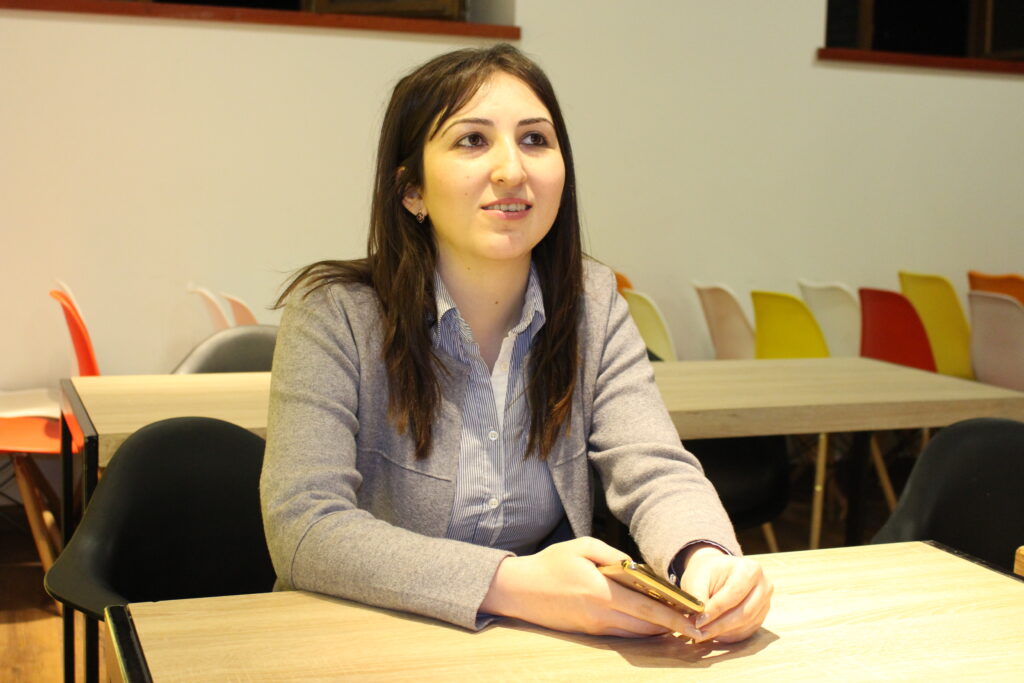 Ani Khachatryan, Young European Ambassador from Armenia
Ani Khachatryan, Young European Ambassador from Armenia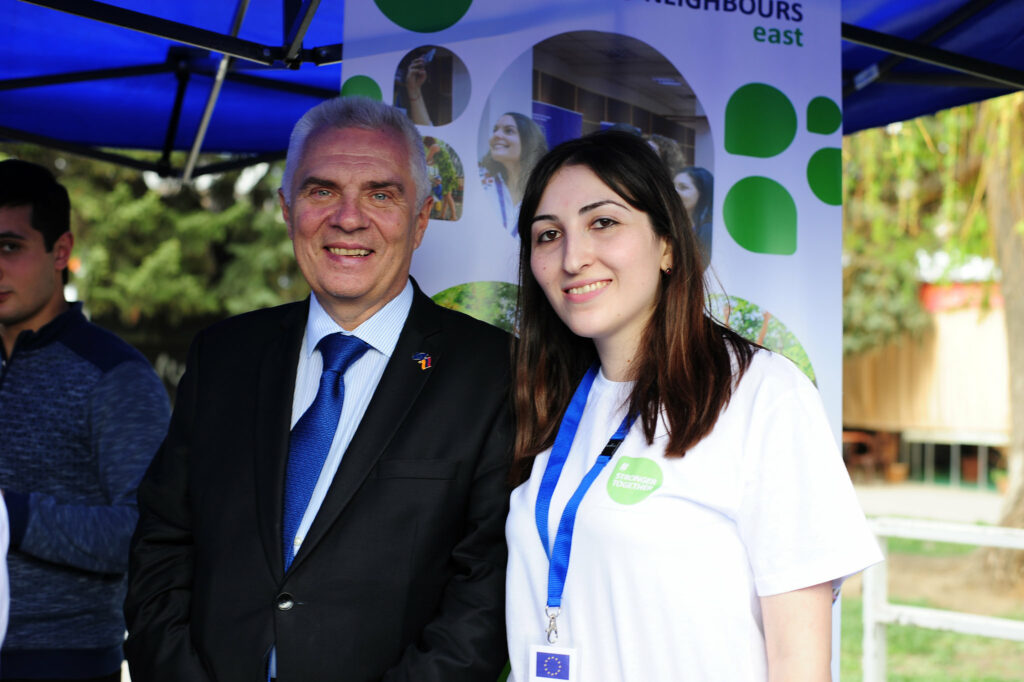 Ani Khachatryan with EU Ambassador to Armenia, Ambassador Piotr Antoni Świtalski
Ani Khachatryan with EU Ambassador to Armenia, Ambassador Piotr Antoni Świtalski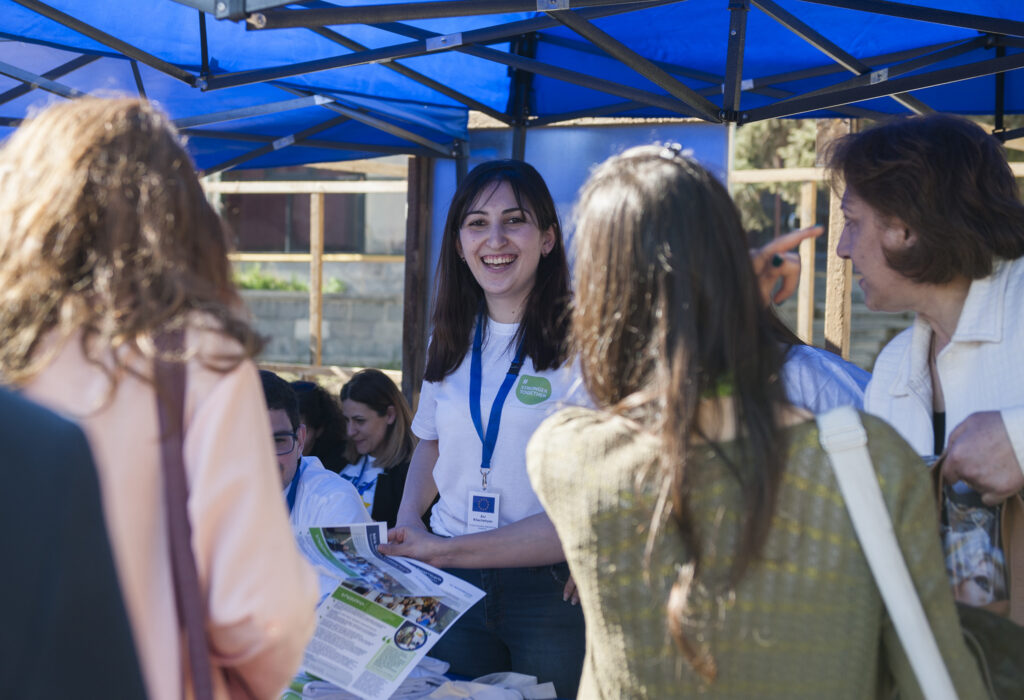 Ani Khachatryan during Europe Day celebrations in Yerevan
Ani Khachatryan during Europe Day celebrations in Yerevan
The Young European Ambassadors initiative is part of the Young European Neighbours (YEN) network, created by the EU-funded OPEN Neighbourhood – Communicating for a Stronger Partnership: Connecting with citizens across the Eastern Neighbourhood (EU NEIGHBOURS east) project.
“This project not only gives me professional experience,” Ani says, “but also the opportunity to make friends with many people. I believe this to be one of my biggest achievements. I can put my finger on any European country on the map and proudly say that I have friends there.”
***
EU-funded projects vary, but they all share the objective of helping communities to develop by investing in individuals. By taking part in these projects and committing to making changes in their lives, these women have become an inspiration to others in their communities. They are breaking the stereotypical view of the role of women in Armenian society and helping to encourage other women to pursue their dreams.
Author: Ami Chichakyan
Article published by local media Arovot.am
MOST READ
SEE ALSO

No, time is not on Russia‘s side
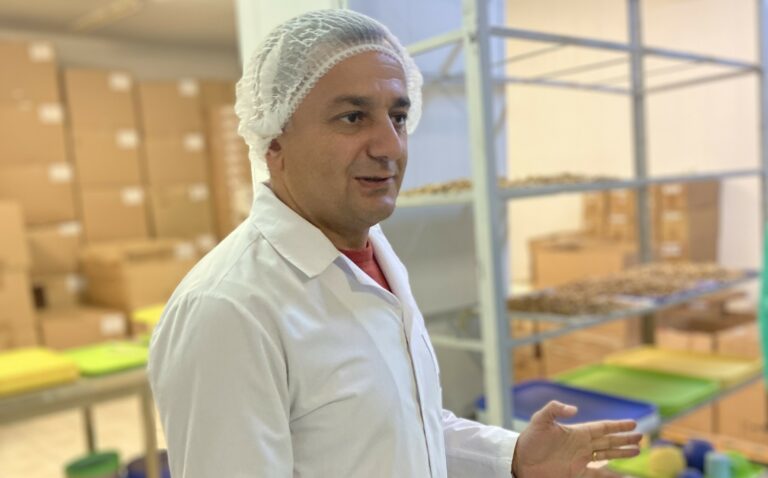
Sweet smell of chocolate
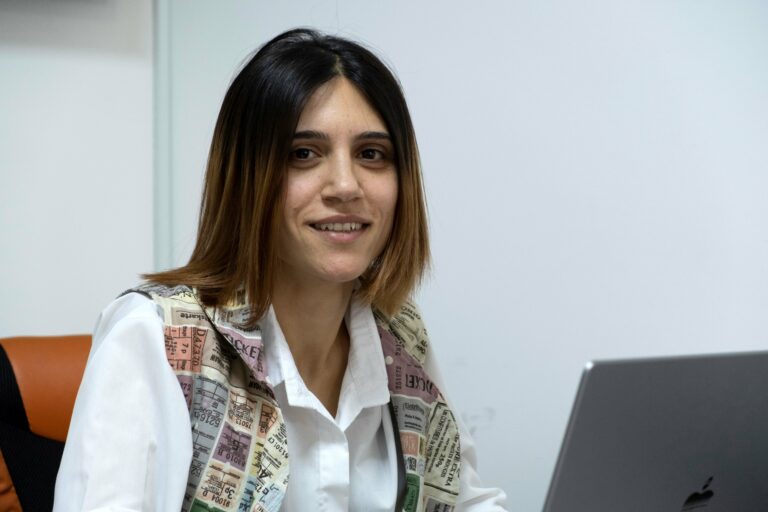
‘Be yourself, and always move forward’: Meri’s advice to young women in business

Be one step ahead of a hacker: check simple cybersecurity tips!
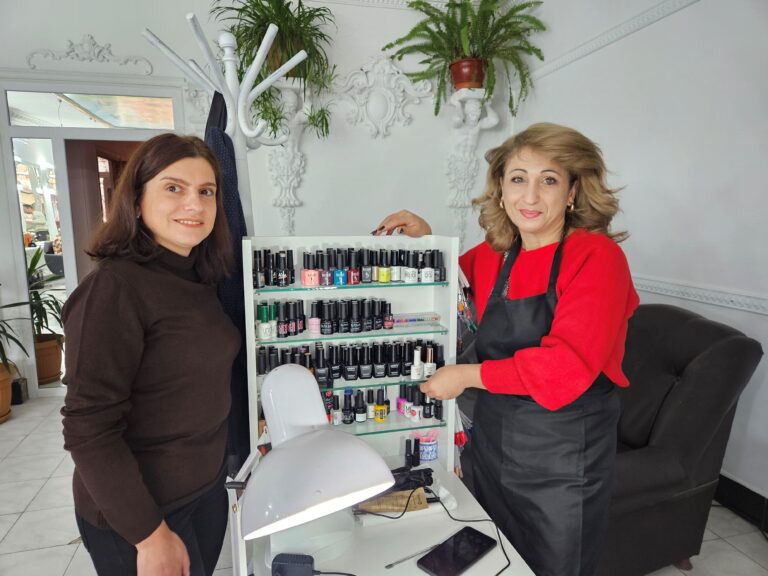
The power of skills: women paving the way to their own business in rural Armenia
More campaign pages:
Interested in the latest news and opportunities?
This website is managed by the EU-funded Regional Communication Programme for the Eastern Neighbourhood ('EU NEIGHBOURS east’), which complements and supports the communication of the Delegations of the European Union in the Eastern partner countries, and works under the guidance of the European Commission’s Directorate-General for Neighbourhood Policy and Enlargement Negotiations, and the European External Action Service. EU NEIGHBOURS east is implemented by a GOPA PACE-led consortium. It is part of the larger Neighbourhood Communication Programme (2020-2024) for the EU's Eastern and Southern Neighbourhood, which also includes 'EU NEIGHBOURS south’ project that runs the EU Neighbours portal.

The information on this site is subject to a Disclaimer and Protection of personal data. © European Union,







